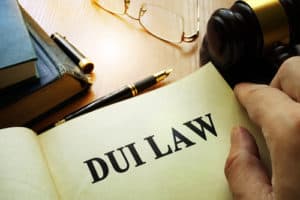
Drunk drivers are not always at fault in car accidents. In Texas, fault is a complicated legal issue involving negligence and multiple state statutes. A lawyer can help you understand how you can appropriately apportion fault in a car accident.
Understand the Penalty for DWI if You Are in a Car Accident
If you were involved in a car accident and your blood alcohol concentration (BAC) level was higher than the legal limit of .08, you can be arrested and charged with Driving While Intoxicated (DWI), which may result in serious criminal charges and penalties. You might face these three serious consequences:
- If you are in an accident that led to injuries and are charged with a DWI, the charge against you can be increased from a misdemeanor to a felony
- Your criminal record may be affected
- If an open container of alcohol is found in your car, the charge against you can be increased from a Class B misdemeanor to a Class A misdemeanor and you could be faced with spending time in jail
In addition to assigning fault, a DWI in combination with involvement in a car accident can have serious consequences. A lawyer near you can help you minimize or avoid the long-term—sometimes permanent—consequences of a DWI arrest or conviction.
Negligence and Comparative Fault in Texas
If you are sued for personal injuries and property damage after a car accident, the basis of the plaintiff’s claim is negligence. In a car accident, that means the at-fault driver did not provide the other driver with the required standard of reasonable care. Because you were driving your car with an elevated BAC, negligence on your part could be implied.
Texas is a comparative fault state which means that according to Texas Civil Practice and Remedies Code Sec. 33.001, “a claimant may not recover damages if his percentage of responsibility is greater than 50 percent.” If either driver bears more than 50% fault for the collision, they could be held financially responsible for the total cost of the accident.
Because drunk drivers are not always at fault, if you believe the other driver played a significant role in causing the car accident in which you were involved, be sure to share that information with your lawyer. Your lawyer can help you prove the cause of the accident and your level of liability.
The Consequences of Fault in a DWI Car Accident
If you are found to be fully at fault for a car accident (or if the majority of the fault for the accident is placed on you), the other involved parties can pursue you for the following accident-related expenses:
- Emergency, current, and future medical expenses
- Current and future lost income
- Pain and suffering and mental anguish
- Physical disfigurement or disability
You do not have to concede fault in a car accident because you were intoxicated. A lawyer can help you fully investigate the accident, uncover and apportion fault, and accept responsibility only for the role you played.
A Lawyer Can Build a Case in Your Defense
A car accident has serious consequences for everyone involved. If your BAC was higher than .08, your lawyer can help define fault for the accident and assign financial liability in the following ways:
- By challenging the machine or device used to test your BAC
- By ensuring your rights were read and understood
- By examining the crash report and interviewing witnesses
- By examining photos and diagrams of the accident scene
If you believe the other driver, motorcyclist, bicyclist, or pedestrian involved in the accident was partially at fault, your lawyer might be able to help prove it.
Get Help Defining Fault in a Car Accident
When an ordinary car trip turns into a collision with someone else, it can have a lasting effect on everyone involved. If you were involved in a car accident and your blood alcohol concentration was at or above the legal limit, you could be faced with serious criminal penalties.
Rather than allowing or conceding to the assumption that drunk drivers are always at fault, a lawyer can attempt to lessen both your charges and financial impact in the aftermath of the accident. Call the Law Offices of Randall B. Isenberg at (214) 696-9253 to reach a legal team member who is ready and eager to help you.










